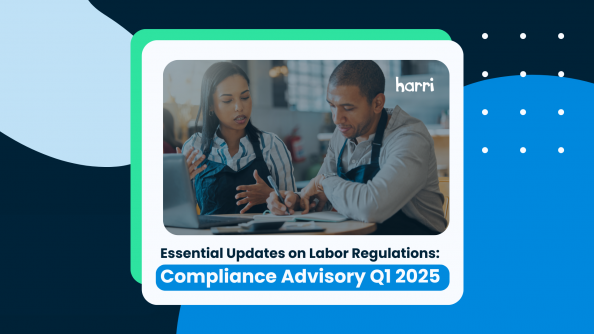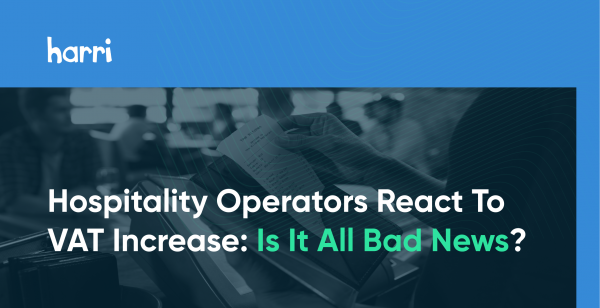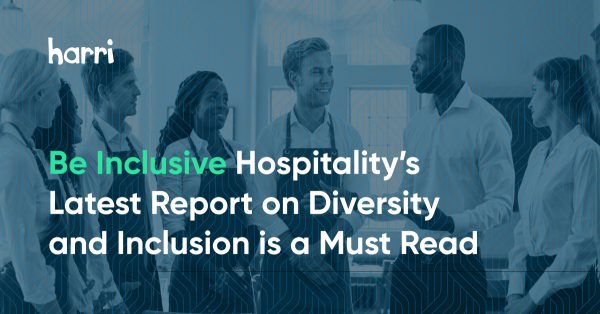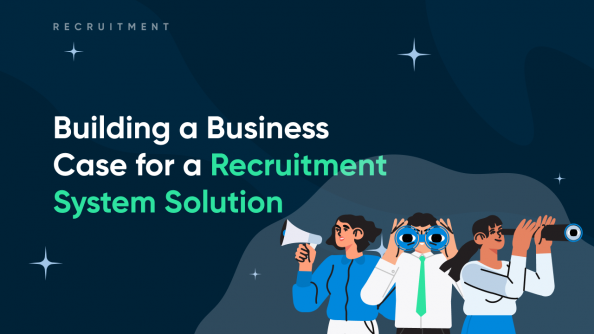An Insider View: Candidate Experience Best Practices
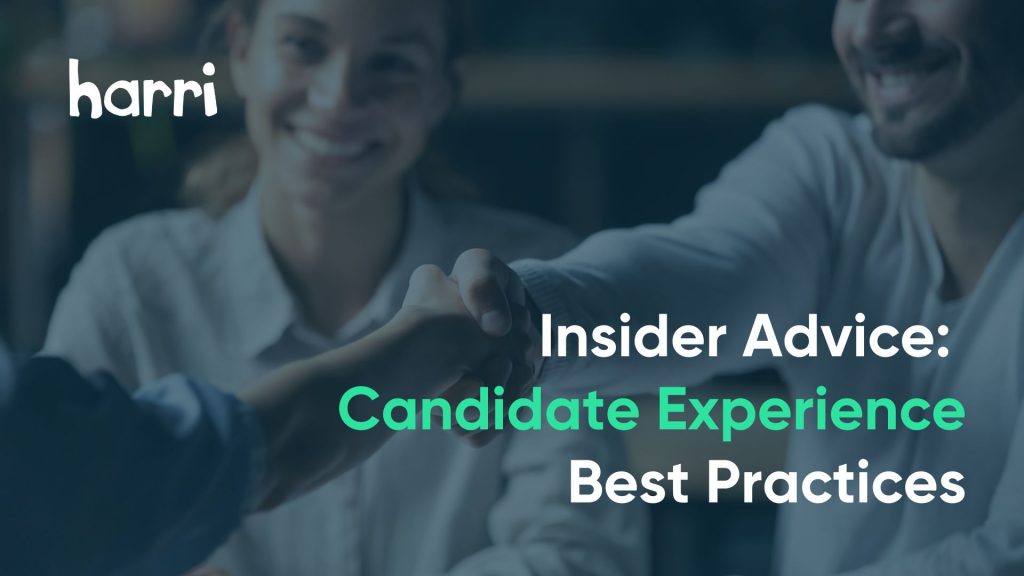
- By Harri Insider Team | July 4, 2023
Hiring went from a recruiting priority to an operational priority in the last year for 7 in 10 talent leaders.
We sat down with Team Harri UK to get their insider view about what they see employers are doing today to attract and hire great staff. Consider this your cheat sheet into their perspectives and insights gained from work with leading UK organisations.

The Key Takeaway: Candidate Experience Remains Vital
When we sat down for our chat, we expected candidate experience to play a significant role in the conversation. What stood out was how quickly the definition of a high-quality experience for modern UK hospitality talent evolved.
Why is Candidate Experience Important to Continuously Revisit?
Talented hospitality workers have numerous options for where to work in today’s competitive job market. That adds pressure on employers to catch their attention quickly, keep it, and delight them with personalised engagement opportunities to ultimately win their loyalty at the point of an employment offer.
Competitive candidate experiences continuously evolve with the sentiment of today’s talent, but that doesn’t mean they are harder to achieve. Harri’s Transforming The Employee Experience In Hospitality report combined Harri’s extensive experience in hospitality and CGA’s expert market analysis to showcase what elements of the candidate experience matter most:
- 30% of employees say a top challenge in hospitality is communication
- 64% of employees say emotional support is more important now at work than pre-COVID
- 88% would like to see technology in the hospitality sector improve
Our team members echoed the theme of intentional touchpoints and detail as they reflected on work with successful UK organisations. You might be pleasantly surprised at how simple the game-changing approaches we talked about are and the clear action items our discussion leads to. Let’s dig in.
An Inside Look at Trends in Candidate Experience
Pull up your front-row seat to your Q&A session with Harri team members who work hand-in-hand with creative hospitality organisations in the UK.
Q: Which changes in candidate expectations and behaviour do employers use to inform their talent acquisition strategies?

Amy Monaghan
A: Above all else, it’s important to remember that today’s job seekers are human beings. Like you and I, they may have a fickle nature that translates to shorter attention spans, expectations for constant interaction, and potentially candidate ghosting. Options and distractions surround them, which makes it more critical for employers to cut through the noise.
Most individuals who seek hospitality work will browse and apply through a mobile device, given the nature of their lifestyles. A single push notification from a social media application can pull them away from your job description or application in seconds. Employers see how important it is to create a hiring process that doesn’t take too much time and compels the right people enough to stick around. That includes faster response times, frequent and detailed updates between stages of the process, and a tone of voice that invites people in and feels memorable from the start.
Key Takeaways for UK Hospitality Employers:
- See candidates as human beings and adapt to their emotions and preferences from the very first impression
- Create a mobile-first experience from career sites to job listings and the application to make things easier to complete and come back to
- Offer chat functionality to answer questions and provide information to avoid roadblocks that would cause someone to abandon the process.
Q: What area of the candidate experience is the most impactful for today’s employers to focus on?

Philip Sharp
A: Once you start to see the humanistic view of hospitality candidates, you can think about easy ways to meet them where they’re at. The most impactful way to adjust your talent acquisition process around the candidate experience is to make people feel informed at every step. It not only helps your candidates understand exactly what to expect but also simultaneously narrows in on the best-fit candidate.
If we look at the job description, employers can include everything someone needs to decide whether or not to apply. They can strike a balance between the factors that stand out about their brand and the details that people look for most. One way we see this working well is when organisations include their people teams and the operational teams who will manage and work alongside the individual to design the role description.
Some factors to consider are a widely recognisable job title, a list of skills that someone can see within themselves, and responsibilities that give a complete picture of what you need from someone in the role. Information like salary, pay type, and schedule expectations will also touch on aspects that are top of mind for curious talent and establish transparency ahead of the application.
On the application itself, employers can create a concise grouping of crucial screening questions that help improve the hiring quality and keep the process short. That way, candidates will become even more clear on what’s important to the role. That has an additional positive impact on time-to-hire as talent pools become smaller and easier to manage with only qualified individuals.
Key Takeaways for UK Hospitality Employers:
- Empower talent with clear and detailed job descriptions that accurately outline the responsibilities, requirements, and benefits of the position
- Keep applications brief but with essential qualifiers that naturally drive quality talent to continue with clear expectations
- Watch time-to-hire and quality-of-hire improve with high-calibre applicants to fuel your talent pools and impact every other stage of the hiring process.
Q: How can employers tie together every aspect of the hiring process, from a candidate’s first impression to their first day?

Roy Walker
A: This is a great question because it doesn’t end with the application, of course. The candidate experience is all about cohesion. An excellent first impression doesn’t mean much if the candidate feels neglected or deprioritised as they move through interviews and onboarding. Employers see even more that it’s not just about the steps in the process but how they flow together; communication is truly that glue.
Engagement with talent is an organisation’s opportunity to demonstrate its commitment to treat its people with respect, fairness, and transparency. When employers are unsure if their communication is adequate in frequency, personalisation, or detail, we suggest they put themselves in their candidates’ shoes. Walk through the process from start to finish and ask yourselves what your ideal candidate would expect to know or see at each phase. From there, see where your current touchpoints line up to identify areas of opportunity.
Information breeds confidence, and something as small as the title of a person completing an interview will help talent feel that an organisation cares about who they are, their time, and their career goals, even if they do not recieve an offer. Employers go the extra mile when they send rejection notices by using a thoughtful tone and still providing them with value for their professional development through notes and feedback to improve upon. That isn’t something many organisations think of, but it goes a long way to build trust and respect that people share with their peers who may be your perfect fit.
Key Takeaways for UK Hospitality Employers:
- Take a new lens to your hiring process from your candidates’ point of view to become clear on areas of focus
- Think about frequent communication that contains quality detail and intention, even if a candidate is ending their process with you
- Always provide candidates with a clear next step to keep their energy high.
Q: Which aspect of talent acquisition do you see being the most important heading into 2024?

David Kieran
A: This year showed us the importance of the human touch, and we can’t deny that the foundation of a successful talent acquisition strategy is the vision, intention, thoughtfulness, and understanding of the people who build it. Beyond that, the most crucial aspect of that strategy will be how organisations get on board with technology to support them. It’s not just about the tech you have, but how you use it to become a hiring powerhouse.
The unique heart of the hiring process will inform tools built to automate that sentiment and build a strategy that can scale in any direction an organisation wants to go. For example, a hiring team may spend time to build thoughtful job descriptions and emails that make talent feel special at each stage. Their technology can then incorporate those into repeatable steps within their process. Maybe the initial time spent turns into preloaded chatbot answers that automate when candidates ask questions on a career site. It could also inform email templates that automatically engage every candidate with speed and authenticity.
The labour market, compliance regulations, and tech advancements will continue to change. When you have a talent acquisition platform you trust to flex with the industry, you’ll get in front of the talent you want most and move them through quicker for the best chance to secure them long-term.
Key Takeaways for UK Hospitality Employers:
- Bring the human touch that candidates connect with into your strategy, then use technology to automate your workflows
- Look for a talent acquisition solution built to scale with future evolution in the candidate experience.
Next Step: Attract and Retain Your Ideal Workforce
Hospitality candidates in the UK want to find employers who genuinely care about their well-being and professional growth to enter a work experience that fulfils them. Our team and the organisations they work alongside are focused on technology, but not without the human side of talent acquisition that can’t be replaced. The findings we heard show the impact of smart strategies that start with intention and lean on tools that make the experience better for everyone involved.
If you feel inspired to take a closer look at your hiring approach, we’ve compiled a quick talent acquisition audit worksheet to bring back to your team. Curious about how Harri can help you along the way? Chat with our team today to learn how our unparalleled employee experiences drive business performance for over 20,000 restaurant and hotel locations globally.







